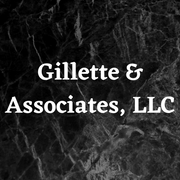Intro to Tax Filing Requirements for Business, Self-Employed, and Individual Taxpayers

If you earn or generate income in the United States, you will likely have to pay federal and state taxes. However, the filing process can vary greatly depending on if you are representing a business entity, an employed individual, or are self-employed. To illustrate the main differences between these requirements, here is a brief guide to what businesses, self-employed professionals, and individuals should know about tax return preparation.
When Are Tax Filing Deadlines?
Individuals
Employed individuals typically need to file with the IRS once a year on or before Tax Day, which usually falls on April 15.
Self-Employed
Self-employed entities will also need to file annually by the Tax Day deadline. However, they should also make estimated quarterly payments on the 15th day of April, June, September, and January.
Businesses
Partnerships file by April 15 if the fiscal year corresponds with the calendar year. Otherwise, they must file on the 15th day four months following the end of the fiscal year. For example, partnerships with a fiscal year that end on January 31 must file by May 15.
 Corporations must file by March 15 when the fiscal year ends with the calendar year. Otherwise, they must file by the 15th day three months following the end of the fiscal year. For example, corporations with a fiscal year that ends in January must file by April 15.
Corporations must file by March 15 when the fiscal year ends with the calendar year. Otherwise, they must file by the 15th day three months following the end of the fiscal year. For example, corporations with a fiscal year that ends in January must file by April 15.
Similar to self-employed individuals, business owners must also make estimated quarterly payments on the 15th day of April, June, September, and January.
What Tax Obligations Am I Responsible For?
Individuals
Individuals are responsible for federal and state income taxes, as well as Social Security and Medicare (FICA) taxes. The employer often withholds these.
Self-Employed
Self-employed individuals must also pay federal and state income taxes. However, instead of Social Security and Medicare, they must pay a Self-Employment Tax that equates to about the same amount.
Business
Business tax return preparation is often the most complicated, as these entities have several tax obligations. These include income, sales (dependent on state location), business property, and excise taxes. Depending on company structure and activity, some may also have to pay gross receipts, franchise, and dividend taxes.
Businesses must also pay a variety of payroll taxes, which include gross FICA, unemployment, and workers' compensation.
Navigating the ins-and-outs of tax return preparation can be challenging, no matter how you earn your income. Fortunately, Gillette & Associates, LLC CPA, offers personalized accounting services in La Crosse, WI, to ensure you file returns accurately and on time—all while making sure you don’t miss valuable deductions along the way. Visit this firm online to learn more about their resources and how they can help you as a taxpayer. To schedule a consultation with a friendly certified public accountant, call (608) 784-8355.
About the Business
Have a question? Ask the experts!
Send your question

